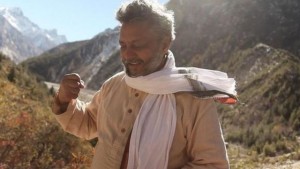Water Rights Activist and Stockholm Water Prize Winner to Visit CSUN

Rajendra Singh. Photo courtesy of BBC.com
As California drags through its fourth year of a severe drought, many may see the benefits of rationing their water. Others may ask themselves, “Is there another way to fix this water problem?”
Rajendra Singh, a world-renowned water conservationist, social rights activist and 2015 recipient of the Stockholm Water Prize (considered the equivalent of a Nobel Prize in water conservation) will lecture on his novel approach to water resilience — that community engagement and activism can provide water for those who need it — at California State University, Northridge later this month.
Singh’s visit comes at a fortuitous time for the Los Angeles community to learn about water conservation, said Mike Antos, director of CSUN’s Center for Urban Water Resilience and host of the Sept. 24 event.
“Water resilience is not just a technical question — it is a social one, too,” Antos said. “[Singh] is coming to talk about his experiences and the importance of having an engaged community learning together to find solutions … [his] life’s work in rural India perfectly aligns with the challenges and opportunities the Center was developed to pursue on campus and in greater Los Angeles.”
Singh has done most of his work in villages in India, where water had become scarce. Through his methods of social engagement and education on water conservation and resilience, Singh has revived seven rivers in India that were dry for more than 80 years, and built more than 10,000 johads, earthen dams that trap rain water to be used as a resource, a traditional technique used in some parts of rural India.
He also worked on water policy issues and in 2013 founded the Indian “Linking Water and People” campaign, which focuses on educating communities in river catchment areas. Singh has advised the Indian government on cleaning rivers, which launched a government organization that focuses on cleaning the Ganges River.
Antos said the social aspect of water resilience is essential to understanding how to better use this resource.
“It’s really exciting to bring what we know within the social sciences to engage with the water issues facing California,” Antos said. “In 2005, former UN Secretary Boutros Ghali warned of 21st century water wars, but Singh and his colleagues believe instead of it being the catalyst for war, water can be a catalyst for deep communication.
“In the face of so much change before us, building resilience is a process of collaboration and education – not just building new things,” Antos added. “We can work together to solve water challenges, and in the process create more resilient communities.”
Singh will speak at 11 a.m. on Sept. 24 in the Sequoia Hall Room 104. The event is open to the public. For more information, please contact the Center for Urban Water Resilience at CUWR@csun.edu.

 experience
experience